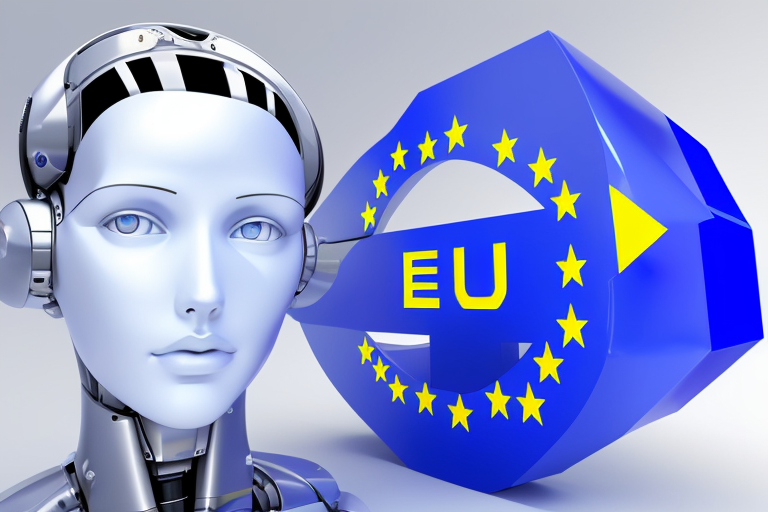Dear guest!
Yesterday I was part of the opening of the Gen AI-Lab by Ecodynamics in Düsseldorf – An event hosted by CEO Hamidreza Hosseini that implemented several new insights into my brain, namely: my neural network. Which of course was, as the foundations of Deep Learning distribute to a growing number of people, the blueprint for GenAI. Artificial neural networks are the core of Generative AI and Large Language Models a central part of it; Hamidreza talked a little about it at the Startplatz in the Media Harbor of the state capital (Thanks also to Lorenz Gräf for his introduction).
We also learned about Large Language Models (LLMs), and got a deeper look at the powerful performance of ChatGPT-4 (available in the Plus plan for $20 per month by OpenAI). And it is no longer a chatbot anymore, although the most powerful today as the CEO of Ecodynamics pointed out, but expanding with its 1000+ plugins and including models into e.g. a multilingual personal assistant, a painter with DALL·E 3, and a data scientist (see “Speak” in the plugin store and “Advanced data analysis” in the ChatGPT-4 menu).
Once again this event, the experience of Hamidreza Hosseini and Stefania Kalinska (COO Ecodynamics), as well as of what some of the participants said about the restrictions and fears of using ChatGPT in their companies, made it clear, that Europe and Germany are lagging behind in this technology that is changing the present and shaping the near future. And of course not only in the development of own tools and Large Language Models for a corporate and scalable application of GenAI (although there are some promising approaches like Luminous by Aleph Alpha in Germany or Mistral AI from France [1] (see hugginface.co for more on AI and LLMs) – But also in the application of the leading GenAI ChatGPT.
One reason, we learned and imagined, is the fear of many managers to implement it mainly grounded in the strict German and European data protection regulations and laws. But this should not be the case, said Mr. Hosseini, because running ChatGPT on servers in Europe and people from Microsoft Azure, for example, make sure that the chatbot complies with the General Data Protection Regulation (GDPR). Just like today with corporate data in the clouds of the Windows inventor, Google, or Amazon’s AWS. So the enterprise dependency is already there – and so is the GDPR match.
But as I am a friend of Open Source, freedom, independence and competition, we should not have only one pair of shoes for the walk into the future! Or as Hamidreza said: A hybrid or different LLM solution for applying GenAI could be better in special company cases. Although from the Silicon Valley as well, Anthropic’s model Claude is a promising candidate to challenge OpenAI, since some of its leading people came from the ChatGPT company. And certainly Anthropic’s funding in the last months with more than 5.5 billion US dollars ($4 billion from Amazon) and its partnership with AWS help to cut a big piece from the GenAI cake in the near future. [2]
This brings me to the question, what Europe and Germany can do in getting on strongly and fast with GenAI – and not lose out on another disruptive technology. As the “chip war” has started already, another insight from my trip to Düsseldorf yesterday, it came to my mind, that Germany, France, and other countries in Europe are obviously not big enough to compete alone with the overwhelming US tech companies, and also with the Asian giants. And even if such an initiative from the Dieter Schwarz Foundation and Aleph Alpha in Germany in building the Innovation Park Artificial Intelligence is of course a step in the right direction, this may be too small to compete with the tech giants. [3]
So the call of the hour might be to bring together forces from Europe like the Innovation Park Artificial Intelligence, Mistral AI from France, and other European AI actors and companies. And we have a very good role model for this, going back to 1970: In those days the foundations were laid for an aerospace company that very successfully challenged the dominant Boeing Company. We are talking about Airbus, of course, and the European company is number one or number two in this industry, depending on the criteria. [4, 5]
Therefore: why not join European forces to create a true champion from the continent that has influenced the world more than any other place throughout history? Our common heritage, our diversity, but also our ability to work together without borders and by valuing our not so different cultures (as seen from a global perspective) are a solid basis for such a goal. And money is there too. Hence it is time for an “Artificial Intelligence Airbus company”!
And I hope and am optimistic that this will happen. Why? Because there are a number of people who are working towards spreading the Gen AI spirit. Hamidreza and his team are one of them! What about you?
Many greeting and all the best,
Stefan Klemens
PS: Want to exchange ideas on people analytics, digital assessment or artificial intelligence in HRM? Then network, write a message and/or make an appointment for an online meeting. Or the classic way: phone call.
And: You like my work and the content I regularly share? Then I’m happy about a Like or comment on LinkedIn. Thank you! ? ?♂️?
Sources:
[1] https://techcrunch.com/2023/09/27/mistral-ai-makes-its-first-large-language-model-free-for-everyone
[2] https://en.wikipedia.org/wiki/Anthropic#Claude
[3] https://www.dieter-schwarz-stiftung.de/aktuelles/aleph-alpha-und-ipai-verkuenden-umfangreiche-partnerschaft.html
[4] https://en.wikipedia.org/wiki/Airbus
[5] https://de.statista.com/themen/5179/airbus-vs-boeing/#topicOverview
Credits:
A first draft of this article was improved by Deepl’s function “Write”, an AI company from Cologne, Germany.
https://www.deepl.com/write
The heading picture was created with Stable Diffusion, the painting GenAI developed by researchers from the L. M. University of Munich.

